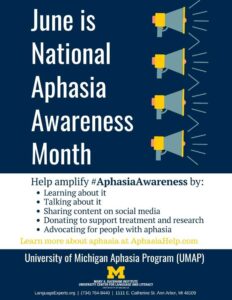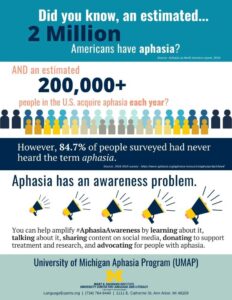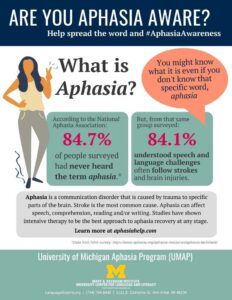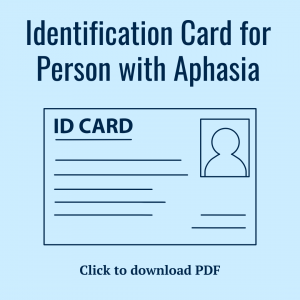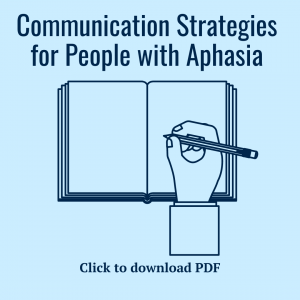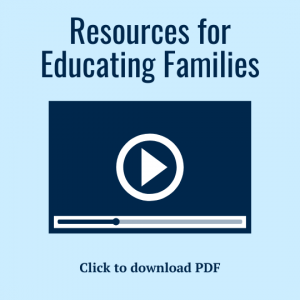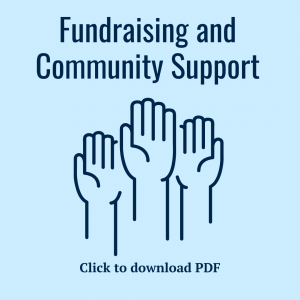Help Build Aphasia Awareness
June of each year is Aphasia Awareness Month — a time when all in the aphasia community are asked to advocate for and educate around the communication disorder aphasia. Aphasia has an awareness problem. It's more common than cerebral palsy, multiple sclerosis, ALS, Parkinson’s disease, and muscular dystrophy — combined. And while most people have probably heard of those other conditions, they are unfamiliar with aphasia.
The fact that it is a communication disorder (i.e., it can take away a person's literal and figurative voice) and it is fairly "invisible" means it is less commonly known and understood among the general population. Yet, chances are that if you know someone who has had a stroke, they may have struggled with communication immediately — or still struggle with it. It can vary in type and severity. Some people recover fully, most make progress, some will never be able to communicate the same ways again.
It's important to build awareness, because as we know, that is the first and most crucial step in finding public and political understanding and support.
Aphasia Awareness and Education Videos
About Aphasia
Communication Tips
Ask an SLP
Aphasia Resources - Posters and Education Tools
Speech-Language Resources for SLPs and Families Living with Aphasia
About the University of Michigan Aphasia Program
The U-M Aphasia Program, or UMAP, is your go-to program for intensive, individualized and innovative aphasia speech-language therapy offered throughout the year in-person and virtually. We established the intensive, comprehensive aphasia program (ICAP) model more than 80 years ago. And we have remained committed to focusing on aphasia treatment —and only aphasia treatment —during that time.
That singular focus translates to highly customized experience for our clients. We are intensive, we are individualized, and we embrace innovation — and it shows. That is the value we provide to you. Our approach, focus, experience, and commitment to families living with aphasia is unlike any other program out there.
Learn more:
- U-M Aphasia Program Overview
- Client Outcomes
- Program Components
- Teletherapy Options
- Session Dates and Rates
Contact us through the website or call (734) 764-8440 to get the conversation started!

